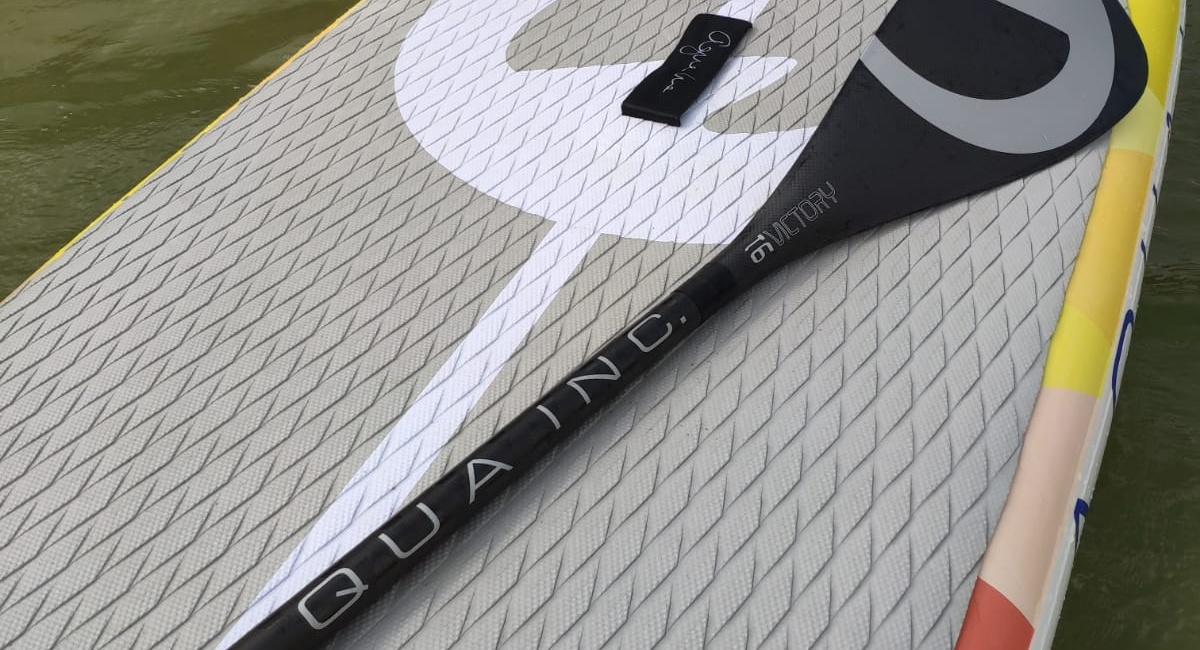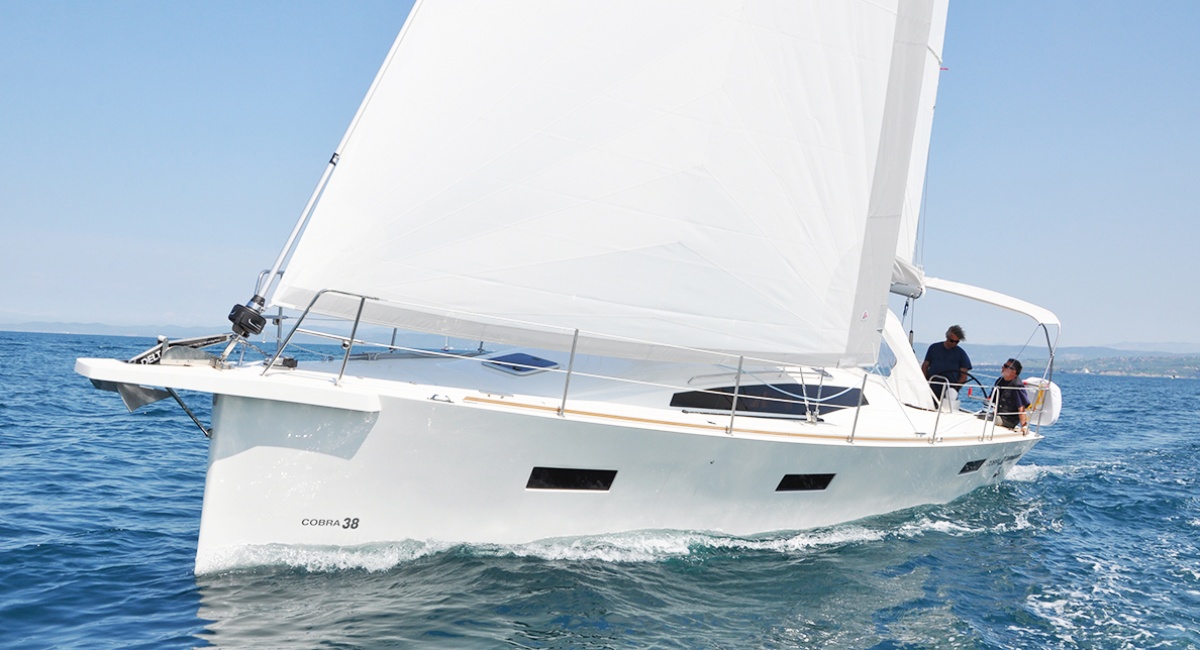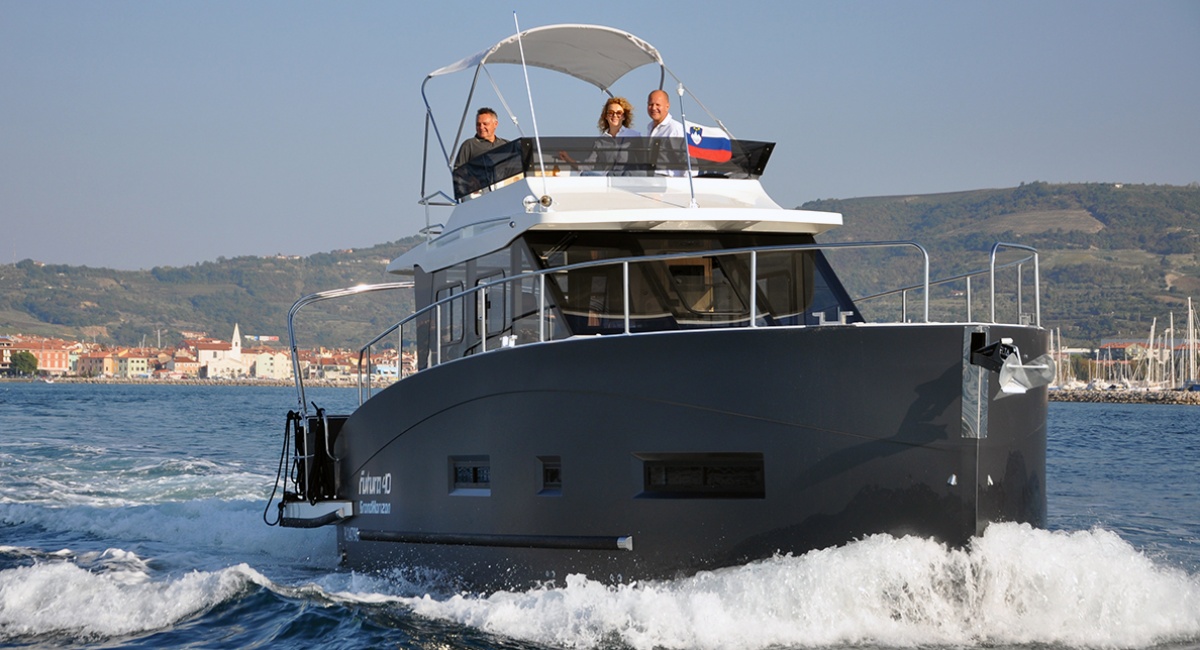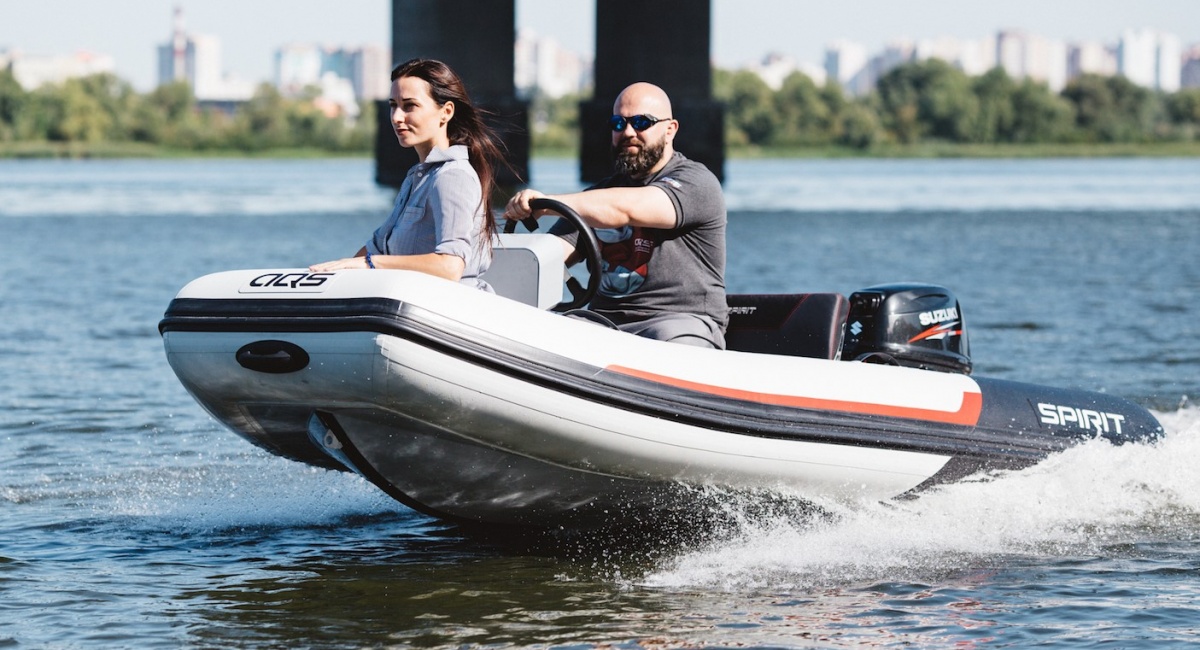1. Cost
For decades, aluminum boats have always been more affordable than fiberglass watercrafts.
In recent times, advances in aluminum boat building technologies have led to an increase in price.
But most are still far less expensive than fiberglass alternatives.
Anglers who fish in shallow and rocky waters will tell you the most affordable fishing boats are aluminum.
In fact, you can get highly durable skiffs from Lund and Tracker for less than $15,000 with all the high-end features you need to land tournament-winning fish.
Besides their affordability, aluminum boats are also less expensive to run because of their fuel efficiency.
Aluminum is lighter and can achieve higher speeds with smaller engines. A fiberglass may require larger or twin engines to attain the same speed as a similar-sized aluminum.
Plus, the lighter aluminum boats are easier to tow, saving you money on the trailer and vehicle maintenance.
2. Durability
Regarding toughness, aluminum boats are more durable than fiberglass.
Aluminum is extremely forgiving when you make mistakes during towing, launching retrieving and while in the water.
They can withstand abuse and won’t suffer extensive damage upon impact.
You can hammer out dents in an aluminum hull and weld serious deformities in place.
In a fiberglass boat, you will incur serious repair expenses and may not have access to the boat for a long time after an accident.
Tip
Here’s an in-depth guide we’ve made with numbers on exactly how long each type of boat typically last. It’s a great read when you are considering which boat is right for you!
3. Comfort
Fiberglass offers more comfortable rides because they have improved stability in the water.
They are heavier and can take complex shapes that enhance their handling in the water compared to aluminum vessels.
Besides, fiberglass is quieter in the water.
Aluminum is noisy in choppy waters because of their metallic properties. Plus, the engine of aluminum boats needs to work harder in rough waters, increasing the noise level.
If you want smooth boat rides, a fiberglass boat is an ideal choice.
4. Aesthetics
Fiberglass boats, with their sparkling gelcoat and luxurious trims, are more visually appealing.
For superior styling that will wow your neighbors, fiberglass gets the job done.
It allows an extensive choice of materials including polished stainless steel, vinyl, chrome, wood, leather among others.
Aluminum boats used to lack this level of finesse until recently.
5. Customizability
During the production phase, fiberglass boats offer more customization options because designers can mold them into any shape.
But you can’t change their shape once the glass solidifies.
Aluminum might not offer that level of versatility, but you can alter the interior and exterior of the boat after completion.
So if you are looking for a brick-and-mortar style remodeling, an aluminum boat might be a better option.
6. Maintenance and Repairs
Aluminum is the clear winner in the maintenance department.
Serious damage to aluminum hulls often cause dents which you can hammer out.
Extensive damage may require welding but it’s still far less expensive compared to repairing a gaping hole in fiberglass.
Plus, severe damage to a fiberglass often requires professional knowhow which takes time and more money.
When Should I Choose An Aluminum Boat?
Aluminum gained widespread use in the boatbuilding industry because of its excellent qualities.
It is lighter, corrosion-resistant and affordable.
In places with shallow waters and rocky beaches, aluminum boats are the economic choice of fishers and leisure boaters.
In Alaska and Nordic countries, you will find aluminum boats dominate. So what makes aluminum the preferred material when buying boats?
10 Advantages of Aluminum Boats over Fiberglass
Here are some benefits of aluminum boats.
1) Weight
The biggest advantage of aluminum boats is the reduced weight.
Aluminum watercrafts are 30-40 percent lighter than fiberglass boats of comparable size.
Compared to steel boats, aluminum boats have 45-55 percent less weight.
This reduced weight makes aluminum boats more fuel-efficient.
They require smaller and lighter engines, are faster and can carry more weight. Lighter boats are also easier to tow.
2) Longevity
Aluminum boats have longer useful lives.
The metal has high tensile strength, improved corrosion-resistant, and simplicity of maintenance.
This makes it is easier to get more life out of an aluminum boat compared to alternatives.
3) Resale Value
Aluminum boats are more environmentally sustainable.
This makes well-kept aluminum watercrafts command a higher resale value and will require less maintenance over their life span.
Aluminum does not wear out or deteriorate over time, so it can store its value for longer.
Tip
Here’s a guide we have made for you if you are looking for a boat with high resale value. We have listed more than 30 boats (different types) that generally have a high resale value.
4) Strength
Aluminum boats can withstand serious rough handling.
Alaskans prefer them for their fish runs as they can scratch rock bottom and sharp banks and come off unscathed.
The reason for this is that aluminum absorbs the energy of the impact thanks to its low modulus of elasticity.
This helps to prevent serious damage to the hull. In serious cases where the boat is compromised, it is easier to repair aluminum because of its high ductility.
You can DIY serious deformation on an aluminum boat by welding.
5) Easy to Maintain
Most of the maintenance work on aluminum requires rinsing the boat and scrubbing off the remnants of your partying and fishing.
A fiberglass boat requires waxing and buffing the fiberglass gel coat. And you will need more cash and specialist know-how if the boat suffers a serious hit.
6) Sun Exposure
Unlike fiberglass, aluminum is immune to the harmful rays of the sun.
Over time, an aluminum boat exposed to the elements will fare better than fiberglass with the same level of care.
Overexposing fiberglass to the sun can degrade the gel coat, the hull and core structures of the boat.
7) Eco-Friendly
While aluminum is extracted from the earth, it is 100 percent recyclable. And the production process is more environmentally friendly compared to fiberglass.
Fiberglass is a cocktail of petrochemicals which is more expensive to produce. It is also difficult to recycle and is a leading cause of environmental pollution in many boating areas.
Because aluminum requires less maintenance, it produces lesser secondary pollution.
Aluminum boats burn less fuel and oil because they use smaller power plants. This reduces their carbon footprint while saving you running costs.
8) Safety
Because they are lighter, corrosion-resistant and extremely strong, aluminum boats have some of the best safety records in the boating industry.
You can crash into a boulder with an aluminum boat, drag it along the riverbank, graze it on rock bottom and it will only suffer small scratches.
Serious abuses that can sink fiberglass boats may require a new paint job on an aluminum boat.
Aluminum is non-flammable so there is a zero risk of it going up in flames.
Fiberglass is a derivative of petrochemicals, which is highly inflammable. While manufacturers use fire-retardant resins to reduce the chances of fiberglass igniting, they create disastrous conflagrations when they do.
9) Customization
One reason boat builders prefer fiberglass is because it requires fewer parts. Aluminum boats may need hundreds or thousands of different parts which are welded, screwed or bolted to each other.
But this provides an advantage as it allows for more customization later in the boat’s life.
All you need do is remove some parts and change them to a new plan. This is almost impossible in fiberglass because it is molded and can’t be taken apart without destroying the boat.
10) Seaworthy
Aluminum hulls have been used for decades to build blue water vessels thanks to their exceptional seaworthiness.
The material is not only light and corrosion-resistant, it can be a lifesaver if you experience a serious accident at sea as aluminum dents rather than shatter like glass.
4 Advantages of Fiberglass Boats
Fiberglass is the preferred choice of boat builders and buyers for many reasons including:
1) Malleability
The biggest winning factor for fiberglass is its ability to take any shape.
Boat builders can mold a complete hull as one unit, eliminating the need for rivets, screws or bolts.
In fact, fiberglass boats can comprise only two pieces, helping to standardize the production line. Because it is malleable, designers create mind-blowing shapes to improve handling in water.
With fiberglass, boat builders create complex hull-forms, making them more varied and highly customizable.
There is so much you can do with fiberglass which is limited in less malleable materials such as aluminum, steel, and wood.
2) Aesthetics
Fiberglass boats are beautiful!
Thanks to gel coats, glass boats can retain a flashy finish for many boating seasons with proper polishing.
You won’t find sharp edges on most fiberglass watercrafts except the design is serving a purpose.
Most glass boats feature sleek construction that is as functional as they are head-turning.
You will find glass boats variable-degree deadrises, pads, multiple stakes, and even transoms made from fiberglass.
If you love breathtaking boats, there is a fiberglass boat out there waiting for boating pleasure.
3) Ease of Handling and Comfort
Fiberglass boats offer immense comfort in choppy waters.
This is because they are heavier and can power through the waves more steadily compared to aluminum.
The result is improved handling and maneuverability at high speeds and less bumpy rides in rough waters.
4) Corrosion-Proof
Fiberglass is non-metallic, so it is not prone to corrosion.
This means you don’t have to worry about electrolytic reactions and they can stay in the water for longer.
However, you must be sure the water won’t damage the boat’s gel coat.






8 Disadvantages of Aluminum Boats
While aluminum boats have exceptional characteristics, the material has some shortcomings.
Here are the disadvantages of aluminum boats.
1) Noise
Aluminum boats can be noisy at high speeds when the hull slaps the water.
This makes them less ideal for on-the-water conversations.
The boat can spook fish if your rod hits the aluminum or something falls on the metal.
This can be a great disadvantage in places where you need total quietness.
2) Less Comfortable
While aluminum’s lightness allows it to achieve greater speeds, it also makes the boat less steady.
The lightweight hull offers little resistance to break through the waves. This makes rides bumpier and lacking the smooth feel of fiberglass.
Because of their instability, high-speed handling can be tricky in aluminum boats.
3) More Labor Intensive Production
Unlike fiberglass, aluminum boats require extensive welding and riveting of hundreds to thousands of parts.
Besides, the superior structural strength of aluminum makes it difficult to form into irregular shapes. But fiberglass can take any form as long as you can mold it.
4) Corrosion
Aluminum is corrosion-resistant, but it is not rust-proof.
In saltwater environments, aluminum boats can experience high levels of corrosion if you don’t take good care of them.
The metal can react with electrical wiring, causing an electrolytic reaction that promotes rust.
5) Expensive Anti-Fouling
It is more complicated and expensive to apply anti-fouling paint to aluminum boats.
Anti-fouling is the paint that prevents marine life from colonizing the part of your boat that stays in the water.
6) Poor Aesthetics
Until recently, aluminum boats used to wear shabby looks, unlike their flashier fiberglass cousins.
Boat builders are now reinventing the livery of aluminum watercrafts to make them as attractive as glass counterparts.
7) Cold
Aluminum is prone to condensation which makes it conduct heat quickly.
The result is that aluminum boats are usually colder, a disadvantage when using them in cold weather.
8) Reputational Issue
Historically, aluminum boats have always been cheap and of inferior quality despite having better credentials in terms of strength and longevity.
5 Disadvantages Of Fiberglass For Boats
For all its bling and sleek curves, fiberglass has many disadvantages such as
1) Osmosis
Fiberglass can absorb water, leading to heart-breaking rot that can render a boat useless.
This is often not an issue, but undetected manufacturing flaws can leave space in the fiberglass, causing it to absorb water through osmosis.
2) Expensive
Fiberglass boats are far more expensive compared to other materials like aluminum and wood.
This also makes every aspect of their production expensive and the buyer bears most of the cost.
3) Huge Maintenance Costs
Unlike aluminum boats which only require a quick rinse and scrub with water, you must wax and polish a fiberglass boat to keep its spark. This is expensive and takes time.
4) Weaker Structural Strength
While fiberglass is versatile in liquid form, it is brittle when solid.
Upon impact, fiberglass boats will shatter instead of absorbing the blow.
This makes them unsuitable for shallow waters and rocky beaches.
Minor damage to fiberglass may be DIY able, but extensive damage will require expensive and time-consuming professional attention.
5) Not Environmentally Friendly
Fiberglass is a composite material made from resins which can be harmful to the environment.
It is expensive to produce and even more complicated and less efficient to recycle.
Plus, fiberglass creates a higher residual pollution because it is maintenance intensive.
Final Words
So should you buy an aluminum or fiberglass boat? It depends on the use and preference.
If you will fish in shallow waters or want a durable boat on a low budget, an aluminum watercraft is ideal for you.
For show-stopping boat parties, luxurious trims and steady cruises, nothing beats the reliability of fiberglass.
There are no winners here; you choose the boat type that best suits your budget and boating needs.